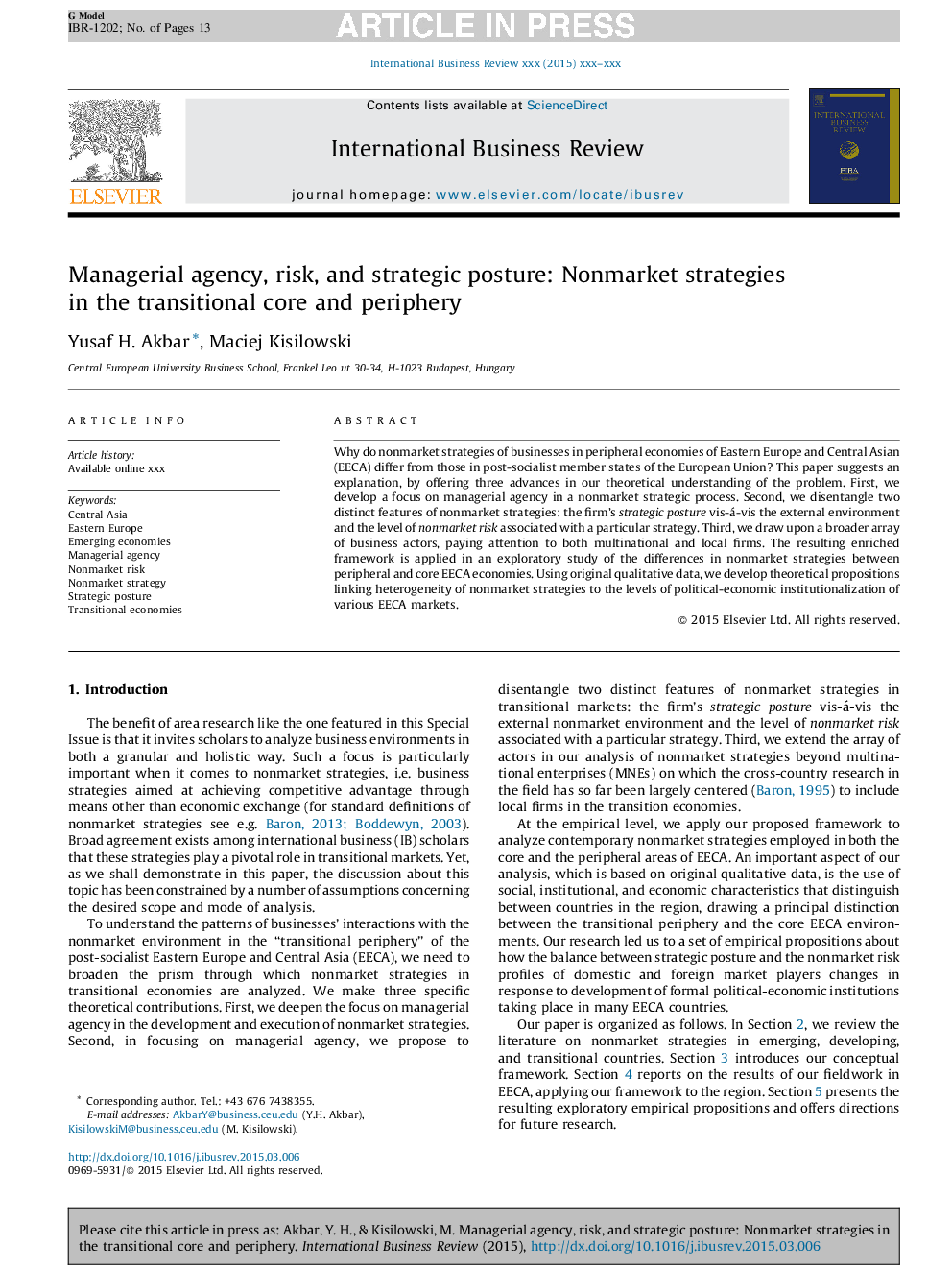| Article ID | Journal | Published Year | Pages | File Type |
|---|---|---|---|---|
| 10488111 | International Business Review | 2015 | 13 Pages |
Abstract
Why do nonmarket strategies of businesses in peripheral economies of Eastern Europe and Central Asian (EECA) differ from those in post-socialist member states of the European Union? This paper suggests an explanation, by offering three advances in our theoretical understanding of the problem. First, we develop a focus on managerial agency in a nonmarket strategic process. Second, we disentangle two distinct features of nonmarket strategies: the firm's strategic posture vis-á-vis the external environment and the level of nonmarket risk associated with a particular strategy. Third, we draw upon a broader array of business actors, paying attention to both multinational and local firms. The resulting enriched framework is applied in an exploratory study of the differences in nonmarket strategies between peripheral and core EECA economies. Using original qualitative data, we develop theoretical propositions linking heterogeneity of nonmarket strategies to the levels of political-economic institutionalization of various EECA markets.
Related Topics
Social Sciences and Humanities
Business, Management and Accounting
Business and International Management
Authors
Yusaf H. Akbar, Maciej Kisilowski,
